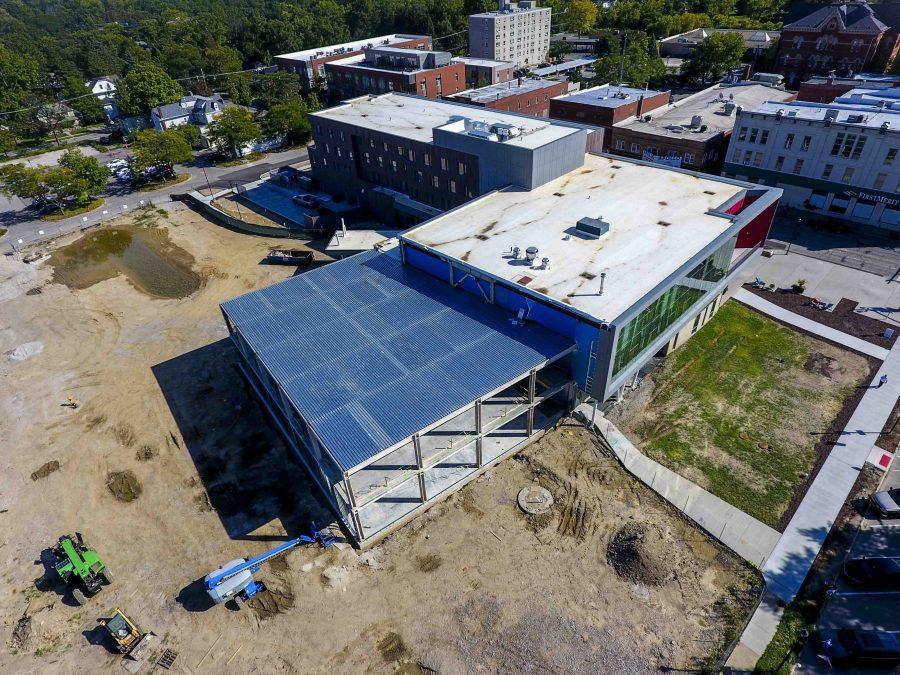Course Clusters Program to Begin Next Fall
Construction continues on the “Oberlin Center for Convergence.” The administration plans to host a new form of multi-disciplinary courses in the building next fall.
September 23, 2016
The College plans to incorporate a new concept of course clusters next fall that will allow students to register for a new kind of multidisciplinary courseload. The extension of the Peter B. Lewis Gateway Center along the north side of The Hotel at Oberlin, which remains under construction, will host the classes. The administration has tentatively named the building “Oberlin Center for Convergence” or “StudiOC.”
“It’s targeted especially for the earlier [ first and second] years … to identify significant global challenges or cultural themes that don’t fit specifically into any one discipline,” Associate Dean of the Curriculum David Kamitsuka said.
Each set of course clusters is designed to cover themes that the administration feels cannot be addressed solely by one department or in one course. Faculty members from different departments will collaborate to combine lecture, service, lab and production to cover subjects that might benefit from cross-disciplilnary studies.
Although the logistics and structure of the program remain undecided, Kamitsuka said he already has ideas for potential course-cluster themes. One possibility included a cluster on music and activism, mass incarceration and global food justice, while another was Islam, modern politics, refugee crises and global public health.
Next year, students will have the option of enrolling in any of the five planned course clusers, although it remains unclear how the clusters will help fulfill major requirements within specific departments.
A $750,000 grant from the Mellon Foundation, dedicated to exploring the concepts of “connected learning,” will go toward the clusters program. Dean Tim Elgren added that the College has allocated around $500,000 to build the facility and hold symposiums that engage the clusters’ students and incoming speakers.
Elgren began pitching the clusters program when he arrived at Oberlin in 2014. After meeting with various departments and faculty, he said that many faculty members felt unable to address the cross-disciplinary aspects of certain fields that some subjects merit.
“The College was thinking about a conversation of elevating … a liberal education to enhance the major, to expand the impact of what the major really is,” Elgren said.
Elgren worked with Vice President for Finance and Administration Mike Frandsen and Dean of the Conservatory Andrea Kalyn to develop a way to provide more cross-department opportunities. In these meetings, the concept of course clusters was born, which Frandsen proposed could be hosted on the second floor of The Hotel at Oberlin.
Administrators will meet with the hotel’s architects next week to discuss the structure of the studio, which would ideally have three large classrooms with collapsable walls to combine rooms. One of the key technological and structural goals, however, is to develop the “global classroom.”
The global classroom concept would give students a study abroad-like experience while on campus, Elgren said. It would involve video-conferencing technology connecting the cluster classes with other universities, both within the U.S. and abroad. This technology could also allow students to work as TAs for high school classes.
Kamitsuka said the administration will have a better idea of its resources and potential course features in about a month. From there, faculty can start to propose ideas and work with academic departments to organize clusters for next year. Elgren added that students can contribute ideas by contacting him directly until the administration establishes an official student-feedback system.

























